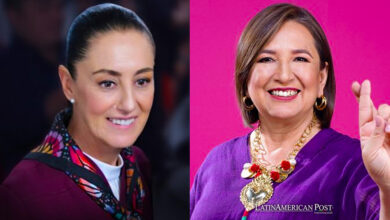Ethical Beauty: The Importance of Knowing the Origins and Choosing Cruelty-Free Cosmetics
In recent years, there has been a growing global awareness regarding the ethical treatment of animals. One area where this concern is particularly prominent is the cosmetic industry. As consumers become more conscious of their choices' impact on animal welfare, the demand for cruelty-free cosmetics has soared.

The Woman Post | Heidy Rojas Duque
Listen to this article
Meet Ralph the Rabbit
Ralph, a lovable and innocent rabbit, symbolizes the countless animals subjected to unnecessary testing for cosmetic products. Behind those big, gentle eyes lies a tale of exploitation and suffering. Ralph represents the more significant issue: the need to protect animals from cruel and inhumane practices, particularly in the beauty industry.
The Plight of Animals in Cosmetics Testing
Traditional cosmetic testing methods have long relied on subjecting animals to painful experiments. Rabbits, mice, and guinea pigs are often subjected to skin irritancy tests, eye irritancy tests, and lethal dose testing, among other procedures. These tests not only cause immense physical pain and distress to the animals but also result in their unnecessary suffering and loss of life.
The Rise of Cruelty-Free Cosmetics
Fortunately, the tide is turning as more consumers seek cruelty-free cosmetics. These products are developed without harming animals, utilizing alternative methods such as in vitro testing, computer modeling, and human volunteer studies. By choosing cruelty-free cosmetics, consumers play a pivotal role in promoting ethical practices within the beauty industry.
The Impact of Choosing Cruelty-Free
Opting for cruelty-free cosmetics has significant implications for animal welfare, the environment, and personal ethics. By supporting cruelty-free brands, consumers send a powerful message to the industry that animal testing is unacceptable. As the demand for cruelty-free products increases, companies are incentivized to invest in innovative and humane testing methods, ultimately sparing countless animals from unnecessary suffering.
Protecting Animal Welfare
The decision by Latin American countries to prohibit animal testing in the cosmetic industry is a significant step toward protecting animal rights and welfare. By implementing legislation that bans such practices, these countries have demonstrated a commitment to ethical treatment and recognized the inherent value of all living beings.
Identifying Cruelty-Free Products
As consumers, we play a crucial role in supporting cruelty-free practices by making informed purchasing decisions. Here are some essential tips to help identify genuinely cruelty-free products:
- Look for Leaping Bunny or PETA's Beauty Without Bunnies Logo: These logos are internationally recognized symbols for cruelty-free products. Brands that have obtained these certifications have undergone rigorous evaluations to ensure their commitment to cruelty-free practices.
- Check for Official Cruelty-Free Lists: Organizations like Leaping Bunny and PETA maintain updated lists of certified cruelty-free brands on their websites. These resources can help you identify trustworthy brands not engaging in animal testing.
- Research Brand Policies: Visit the website and look for their animal testing policy. Genuine cruelty-free brands will explicitly state their commitment to not testing on animals in their product descriptions or on a dedicated cruelty-free page.
- Use Cruelty-Free Apps and Websites: Numerous apps and websites provide information and product recommendations for cruelty-free options. These resources often include comprehensive databases of cruelty-free brands and can be handy tools for conscious consumers.
- Be Aware of Misleading Terminology: Be cautious of terms like "not tested on animals" or "animal-friendly" as they can be misleading. Some brands may use these phrases without being genuinely cruelty-free. Look for brands explicitly stating that they do not test on animals at any production stage.
The importance of decision-making extends not only to companies but also to consumers when it comes to purchasing cruelty-free products. By consciously supporting brands that uphold ethical practices and abstain from animal testing, consumers send a powerful message to the industry.




